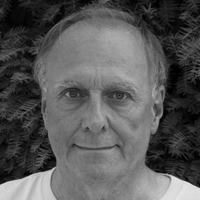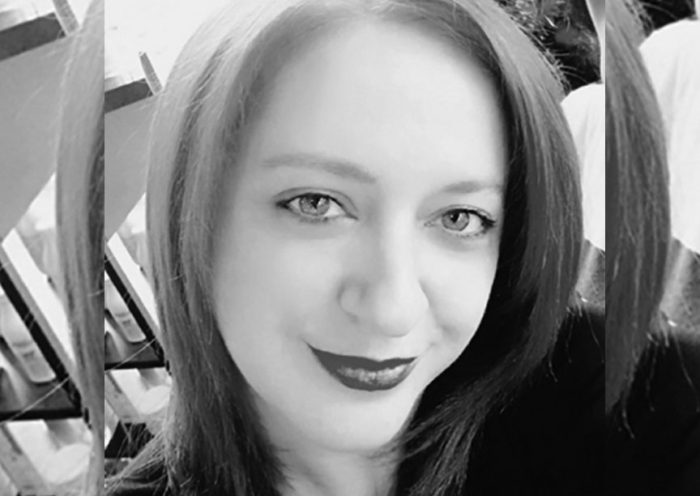The Power of Poetry:
An Interview with Chryssa Nikolakis
Bill Wolak and Chryssa Nikolakis
Chryssa Nikolakis was born in Athens, Greece. She graduated from the University of Athens, Theology Department, with a Master’s of the Arts; she also received a Master’s Degree in Literature from the Hellenic Open University. She also holds a Diploma in Translation and Subtitling (British Council). She has published literary studies in many scientific-theological journals. In 2017 she published her first poetry collection Sea Gate (Ostria). Her stories and poems have been published in anthologies such as Short Story Anthology 2017-2018 (Ostria 2017), Colors of the Soul (Ostria, 2018), 4th Anthology Collection (Dianysma 2017), Calendar 2018 (Vergina), Conversations with Cavafy (Ostria), and Conversations with Kazantzakis (Ostria). She primarily deals with literary criticism about poetry, prose, theater, and fairytales. In April 2019, her first book of fairytales, Boy and the Dragon, was published (Aparsis); it was read in the “Fairies and Dragons” program of Voice of Greece (ERT). Her poems “In Defense of the Marginalized” and “Justified” received honors at the Delphi Pan-Hellenic Poetry Competition (2018 and 2019). Her poem “Redemption Time,” was awarded the 3rd Prize at the 8th World Thematic Competition of Hellenism, (2019). She writes literary reviews for many magazines, such as: FRACTAL, TOVIVLIO.NET, MAXMAG, and AUTHORING MELODIES. In May 2019, she became a member of the Panhellenic Union of Writers (PEL).
Bill Wolak: What was it that first attracted you to poetry?
Chryssa Nikolakis: Τhe emotional part. Ι was sixteen when I read Yannis Ritsos’ “Moonlight Sonata,” and that made me cry. Soon after, I started writing little poems, especially when I was stressed.
BW: Who were the first Greek poets that you enjoyed reading?
CN: Cavafy, Livaditis, Papadiamantis, and my favorite one Yiannis Ritsos.
BW: Were there any other Greek poets or poets from around the world who later influenced you?
CN: Υes, Edgar Alan Poe and Tennessee Williams.
BW: The title of your first book of poetry is Sea Gate. Can you tell me a little about the kinds of poems in that book?
CN: It is inspired by my dreams, by love, and the human condition, as well as the divine.
BW: You graduated from the Theology Department of the University of Athens. What aspects of theology interested you?
CN: The parts that interested me more than everything else were philosophy and sociology in connection to theology.
BW: How did you first become interested in fairytales?
CN: I started telling fairytales to my little daughter, Simela, and she was very excited about them. So I decided to write them down and create a book out of them.
BW: Can you tell me a little about Boy and the Dragon?
CN: Boy and the Dragon is a fairytale about loneliness and friendship. The Boy lives all alone in the woods along with the little animals. The Dragon comes, first saves and then rescues the Boy, and together they travel all over the world. Children have to choose between money and friendship, between freedom and borders. In the end, love is the real winner.
ΒW: What other languages have you studied?
CN: French, but English has conquered me.
BW: Can you explain what you find so compelling about the poetry of Yannis Ritsos?
CN: I’m attracted by his simple way of developing his poems without any obscure allusions and polysyllabic words that some poets use to attempt to impress their readers. I also love him for the sense of humanism I find in his poems and his genuine affection for humanity.
BW: In Cavafy’s poetry, which kind do you prefer: his more objective historical poetry or his more personal erotic poetry?
CN: I prefer his historical poetry, which I think it is unique, although his erotic poems are quite dramatic too.
BW: All American students read some Edgar Alan Poe during their time in school. Did you first read him in school, or did you find him on your own?
CN: I read him on my own because he’s not taught in school. I love his way of writing and the fact that he catches the readers’ attention with the final images in his poems.
BW: Were you first attracted to Poe by his poetry or his short stories?
CN: Yes, poetry, which, of course, I find more realistic and vivid.
BW: How exactly did poetry help you relieve your levels of stress when you first started writing? Does poetry still have the same stress-relieving effect on you when you write today?
CN: Poetry is my eternal love. I will write till my last days. It relieves all my troubles and pain. I believe that poetry has the power to grace one with catharsis only because of the images and its vividness.
BW: What kind of a career have you pursued? Are you a freelance writer, an editor, or a teacher?
CN: I am a literary critic and a freelance writer; I send my work to various magazines, and they are always accepted and published. I also write fairytales as well as poems and short stories
BW: How would you describe your writing process when you are writing poetry? Do write in notebooks, journals, or directly onto the computer?
CN: I prefer to write in notebooks and afterwards I jot them down to the computer; you might call me an old fashioned person, but that’s how I function.
BW: What sort of literary studies have you published?
CN: Quite a few of them, mostly on Ritsos, on Kazantzaki’s, and a research paper on Cavafy.
BW: Have you ever participated in any international poetry festivals?
CN: Yes, this year I participated in the International Festival of Poetry For Peace in Athens.
BW: Have you had a chance to travel to other European countries or other destinations outside of Europe? Are there any places in the world that you would like to visit next?
CN: I have travelled in France, Prague, and Italy. I would like to travel in Spain, Las Vegas, and Tokyo.
Five Poems by Chryssa Nikolakis
LONGING
I want you like a fallen angel
who reached his Heaven
and drank water from the crystal spring.
I want you like a flower
that discovered the Castalian Spring
in a Jewish desert.
I want you like a lake
that yearns for its escape
to the untraveled ocean
into which to merge.
I wish I could become
light wind upon your lips
to get the kiss of your water
though your pitcher is too small
and how can it quench me?
translated from Greek by Manolis (Emmanuel Aligizakis)
IMAGE
At the first glimpse of dawn
the graceful sun
spreads the summer’s conflagration
onto our bed-sheets
when winged Eros charges
through the window
to appease his hunger
as it rests his arms
on our sweaty bodies
translated from Greek by Manolis (Emmanuel Aligizakis)
TWILIGHT
Eternal moment
hidden in the damp sky
when I close my eyes
before the unachievable
gates shut tight
petals of the night-flower
spring distances itself
while you climb up the hill
sacrifice that wasn’t meant for you
the preacher’s voice
inside the empty church
and I still love you
my starless night sky
like the clear table
on a Sunday twilight.
translated from Greek by Manolis (Emmanuel Aligizakis)
THE GIFT OF PNEUMA
I laid an honorary wreath
I prayed for your name
in the church I lit a candle
and I started my frenetic
and ecstatic dance
on Dionysus’ rhythm
and I said
Heaven and Hell
you my Earth and you my Sky
barefoot I run
away from the temple
crying I raised my head up high
and I asked:
oh you, Adam’s descendants
which is your original sin?
Life is here and so is Death
translated from Greek by Manolis (Emmanuel Aligizakis)
LOW TIDE, HIGH TIDE
Flood of happiness
which I feel for the first time
wild dustbowl into which I jump
fast talkative creek
water to quench the thirst of Nereids
the Centaur’s shake up amid the clouds
almost sundown, a twilight
just before the stars warm our sky
low tide and high tide
inhaling, exhaling
Love and Eros
Gods’ chosen gift
hidden into an angel’s crypt
away from unhappy eyes
faraway from an earthly sin
into the eternal manger
of our Love
translated from Greek by Manolis (Emmanuel Aligizakis)

Bill Wolak is a poet, collage artist, and photographer who lives in New Jersey and has just published his eighteenth book of poetry entitled All the Wind’s Unfinished Kisses with Ekstasis Editions. His most recent translation with Mahmood Karimi-Hakak, Love Me More Than the Others: Selected Poetry or Iraj Mirza, was published by Cross-Cultural Communications in 2014.Recently, he was a featured poet at The Mihai Eminescu International Poetry Festival in Craiova, Romania; Europa in versi, Lake Como, Italy; The Pesaro International Poetry Festival, Pesaro, Italy, The Xichang-Qionghai Silk Road International Poetry Week, Xichang, China, The Ethnofest, Pristina, Kosovo, the Chengdu International Poetry Week, Chengdu, China, and the International Poetic Conference, Poznań, Poland. He has published interviews with the following poets, writers, and artists: Anita Nair (India), John Digby (United Kingdom), Dileep Jhaveri (India), Gueorgui Konstantinov (Bulgaria), Naoshi Koriyama (Japan), Sultan Catto (United States), Ilmar Lehtpere (Estonia), Jeton Kelmendi (Kosovo), Yesim Agaoglu (Turkey), Mahmood Karimi Hakak (United States), Philip Cioffari (United States), Yongshin Cho (Korea), Manolis (Emmanuel Aligizakis) (Canada), Jami Proctor Xu (United States), Stanley H. Barkan (United States), Annelisa Addolorato (Italy), and William Heyen (United States).














